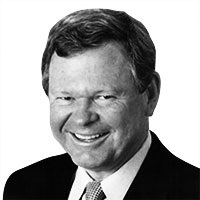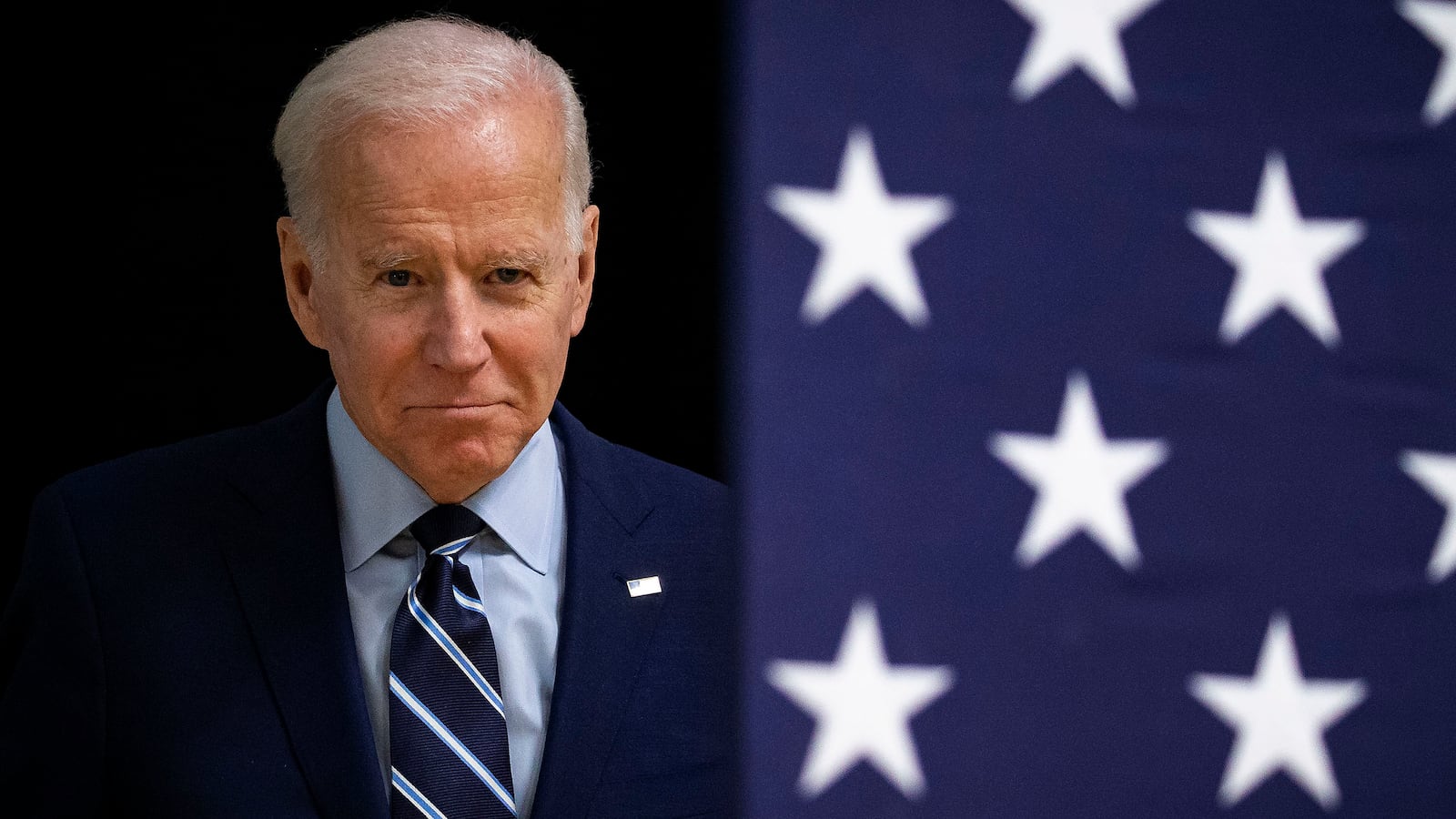As former Vice President Joe Biden’s advisers struggle with ways to heighten the visibility of their candidate in these bizarre political times, they should avoid the trap that has ensnared many other campaigns: making promises that can undermine campaign operations and the work of governing if you win. The long road to chaos or defeat is littered with many of them.
Most notable may be George H. W. Bush’s “Read my lips, no new taxes!” pledge in 1988. When forced to raise revenues with even a modest tax increase he was bludgeoned by conservatives and ultimately defeated for re-election.
While campaigning in 2008, Barack Obama emphatically declared that he would close the Guantanamo Bay facility housing terrorist suspects. Throughout his two terms he was criticized for not doing so.
While running for a full term in 1964, Lyndon Johnson declared: “We are not about to send American boys nine or ten thousand miles away from home to do what Asian boys ought to be doing for themselves.” The massive escalation of U.S. troops fighting and dying in Vietnam arguably cost Johnson a shot at another term in the White House.
George W. Bush promised in 2000 that the vast majority of his tax cuts would go to the “bottom end of the spectrum.” Nearly 70 percent of the Bush-Cheney tax cuts went to the top 20 percent of income earners. Even Thomas Jefferson fell prey to grandiose campaign promises in 1800, stating that if elected he would reduce the national debt. The 1803 Louisiana Purchase blew that promise through the roof.
While Bush Jr. and Obama won re-election, these campaign promises would hound their leadership for their entire time in office. Johnson and Bush Sr. would end their careers in part due to campaign commitments that would backfire.
In the early fall of 1992, the Clinton-Gore team on which I was working was hunkered down in Little Rock looking for a new issue each day to bolster the messages from the candidates on the road. On one slow day in the war room, we came up with “Ethics Day!”, which would feature with a long list of lapses by the Bush-Quayle administration. On another, it was “Cutting the White House Staff by 15%!” And, of course, “Our Administration Will Look Like America!”
Fast forward to the White House transition beginning the day after the election. As we tried to keep the focus on Clinton-Gore economic revitalization plans, the press began pounding us with questions about diversity in the new administration and how we were going to eliminate 15 percent of White House positions. And would we complete Cabinet selections by Christmas as was promised?
Once we moved into the White House, our press team was hammered almost daily about the staff cuts. I spent untold hours looking for a hundred or so positions to eliminate—no easy task in a White House determined to attack every issue and crisis before the next news cycle. In the end we found a treasure trove of slots in Dan Quayle’s Space Council, but not until we had spent weeks trying to fulfill a campaign promise that arguably need not have been made.
“Ethics Day” backfired quickly when several of our new administration appointees found themselves in their own ethical and legal quagmires. We faced constant charges of hypocrisy from the media and our political adversaries. And don’t get me started on the White House Travel Office “scandal.”
There are lessons here for the Biden team. Some influential Biden supporters are likely pressing the candidate to be more proactive, make dramatic announcements. The promise to name a woman as the vice presidential nominee was, indeed, dramatic, and it likely energized many in the Democratic base. But we now have multiple campaigns underway to influence Biden toward one candidate or another—at best a distraction for the Biden team as it is navigating the current, strange campaign landscape.
More recently we learn that Biden may announce prospective Cabinet appointments during the campaign. That would likely refocus attention away from the candidate and toward microscopic investigations of all named individuals. Interest groups will undertake lobbying campaigns to advance, or undermine, prospective Biden cabinet appointees. As one who has juggled a tidal wave of assertive folks seeking positions in a potential Gore administration, I can attest to the monstrous headache that will burden a campaign that must stay completely focused on getting the candidate elected.
Of course not all dramatic promises are problematic for the campaign or governing. Biden has also committed to appoint an African-American woman to the Supreme Court, a noble goal that he can accomplish if elected. But the pressure to grab media attention with newsworthy campaign promises is powerful, and what seems to be a good political hit one day can come back to viciously bite a president-elect. So a friendly word of advice from one who has been bitten: consider the implication of these promises for your time in the White House.
A number of senior Biden campaign advisors have been around this track from their time with the Clinton-Gore and Obama-Biden administrations. Here’s hoping they can avoid the temptation of making campaign promises that can come back to haunt an incoming Biden White House.
Roy Neel was Deputy Chief of Staff in the Clinton-Gore White House and Transition Director for Gore’s 2000 campaign. He is the author of The Electors. He is an adjunct professor of political science at Vanderbilt University.






